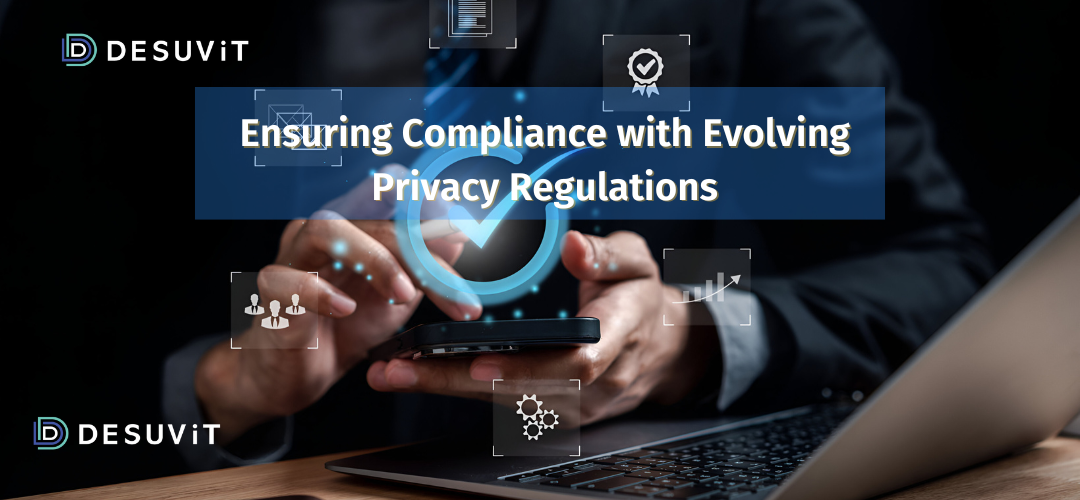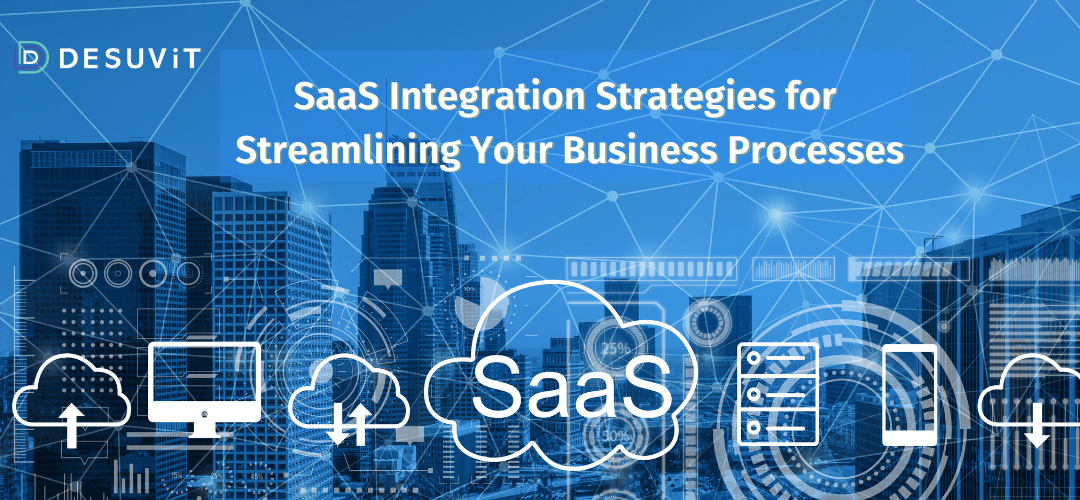Nowadays, ensuring compliance with evolving privacy regulations is a major priority for businesses. With data privacy concerns growing and regulations becoming increasingly stringent, organizations must stay abreast of the legal landscape. From GDPR to CCPA and beyond, navigating these regulations requires a proactive approach and a thorough understanding of compliance requirements!
Understanding the regulatory landscape
Understanding the regulatory landscape is step one for every business. Regulations like GDPR, CCPA, and LGPD vary in scope and requirements. So, staying updated with amendments and recent developments is a priority. It helps businesses adapt policies and procedures accordingly. The regulations include the following:
- GDPR introduced stringent data protection rules, affecting global operations
- CCPA focuses on consumer rights regarding personal data in California
- LGPD governs data processing activities in Brazil
These regulations impact data collection, storage, and marketing practices. Staying abreast of changes helps businesses meet legal obligations.
Assessing the impact on your business
Assessing the impact of privacy regulations on your business is another basic requirement you need to fulfill. Various aspects, such as dealing with security issues when developing an app for your business, require careful consideration. GDPR mandates robust data protection measures, affecting app development processes.
Therefore, understanding how regulations affect data collection, processing, and storage is a priority. It helps identify areas where adjustments are needed to align with legal requirements! By conducting a comprehensive audit, businesses can gauge their current compliance status. This assessment enables proactive measures to address any gaps and mitigate risks more effectively.
Building a compliance framework
Implementing privacy-enhancing technologies (PETs) is another crucial step in bolstering your security measures. However, navigating the complexities of these technologies can present challenges, including unexpected problems that may arise. In such situations, partnering with experts who can seamlessly integrate compliance into your marketing strategies becomes invaluable.
Digital Marketing agencies and their expertise ensures that your marketing strategies are effective and align with the latest privacy standards. Digital Dot New York, a prominent digital marketing agency, excels in crafting customized online solutions. This can help safeguard your business and your consumers, ensuring that your growth is both sustainable and responsible.
Data minimization and purpose limitation
Data minimization and purpose limitation are fundamental principles in privacy compliance. In other words, you need to collect only the necessary data for specific purposes! Reducing the amount of data collected enables businesses to minimize the risk of unauthorized access or misuse. Similarly, implementing purpose limitation means data is used only for the intended purpose. This fosters customer transparency and trust, as they know their information won’t be used for unrelated activities.
Consent management
It’s important to obtain clear and affirmative consent from users before collecting or processing their data. Allowing users to manage their consent preferences empowers them to control how their information is used.
Clear guidelines should also be established for obtaining and managing user consent throughout the customer journey. This helps businesses build trust with their audience and demonstrates respect for user privacy.
Data security measures
Implementing robust data security measures will help you safeguard sensitive information and follow privacy regulations. These measures involve implementing encryption, access controls, and regular security audits to protect data from unauthorized access or breaches.
These measures should be applied consistently across all data processing activities, including when migrating your data! Whether data is stored on-premises or in the cloud, security protocols should be in place to protect data integrity and confidentiality. Lastly, businesses should also have incident response plans prepared to address data breaches promptly and effectively.
Cross-border data transfers
Cross-border data transfers pose unique challenges for businesses operating in a globalized digital environment. As such, you should work on understanding the restrictions and requirements associated with international data transfers. Regulations such as GDPR impose strict guidelines on transferring personal data outside the European Economic Area (EEA).
To avoid problems, businesses must implement appropriate safeguards, such as Standard Contractual Clauses or Binding Corporate Rules. These safeguards mean that the transferred data receives adequate protection, regardless of destination. Leveraging data localization strategies can also mitigate some of the risks associated with cross-border data transfers.
Employee training and awareness
Employee training and awareness are extremely important for achieving compliance with evolving privacy regulations. After all, educating employees about privacy regulations guarantees they understand their responsibilities. Regular training sessions also help reinforce proper data handling practices and cultivate a culture of privacy within the organization.
Employees can also actively contribute to these efforts by raising awareness about potential risks and best practices. Training sessions provide opportunities for employees to ask questions and seek clarification on privacy-related matters. This fosters a sense of accountability and encourages proactive compliance measures. Furthermore, keeping employees informed about regulatory updates and changes keeps them up-to-date with evolving requirements!
Vendor management
Vendor management is another method of securing compliance. After all, assessing the practices of third-party vendors and partners can help you mitigate risks. Including privacy clauses in vendor contracts helps establish clear expectations regarding data protection responsibilities. Regular monitoring and auditing of vendor compliance helps maintain ongoing adherence.
Actively managing vendor relationships lets businesses minimize the risk of data breaches and ascertain that third parties are handling client info securely. Lastly, maintaining open communication channels with vendors also allows for swift resolution of any issues that may arise.
Privacy by design and default
Privacy by design and default is a proactive approach to data protection, emphasizing privacy considerations from the outset of product and service development. By default, integrating privacy features into products and services guarantees that privacy is prioritized throughout the entire lifecycle. This approach helps minimize the risk of violations and breaches.
By embedding these features into the design process, businesses can also enhance user trust and confidence in their products. As such, collaborating with product teams to achieve this implementation is a central consideration that helps to identify potential issues early on and address them effectively.
Compliance monitoring and auditing
Compliance monitoring and auditing are helpful components of maintaining adherence. Regular audits help businesses assess their compliance status and identify areas for improvement. Conducting internal and external audits helps organizations make sure that their measures are effective and up-to-date. Monitoring changes in laws also allows businesses to adapt their policies and procedures accordingly. This proactive approach helps mitigate risks and demonstrates a commitment to compliance! Likewise, compliance audits provide valuable insights to enhance decision-making and improve your IT approach.
Collaboration with regulatory bodies
Collaboration with regulatory bodies is a great venue for businesses striving to guarantee compliance with privacy regulations. Building relationships with relevant authorities lets businesses stay informed about legal requirements and industry best practices. Seeking their guidance and clarification on ambiguous requirements also fosters a better understanding of compliance obligations.
Thrive by ensuring compliance with evolving privacy regulations
As businesses strive to maintain trust and uphold data privacy standards, ensuring compliance with evolving privacy regulations remains a top priority. Still, by implementing robust compliance frameworks, prioritizing security measures, and fostering a culture of privacy awareness, organizations can confidently navigate the complex regulatory landscape! Embracing these practices both mitigates risks and strengthens relationships with customers. Stay informed, proactive, and compliant to safeguard sensitive information and thrive!
Desuvit is a Norway-born software development company delivering Custom Software Development, Mobile Apps, and Web Applications Development for various verticals and business domains. We offer end-to-end solutions for companies with no software or IT division, Startups, and companies that need to scale their software development efforts but lack the expertise required. We help our clients in growing their businesses so we can grow with them. Some of the technologies we work with: .Net, Azure, Microservices, Azure functions(Serverless computing), React Native, Flutter, React JS, TypeScript, Angular, NServiceBus, Azure Service Bus, Azure Queues, SQL Service, MySQL, Cosmos DB, etc.
Enjoyed this article? Subscribe for more valuable and great content !
By subscribing, you agree with our privacy policy and our terms of service.



